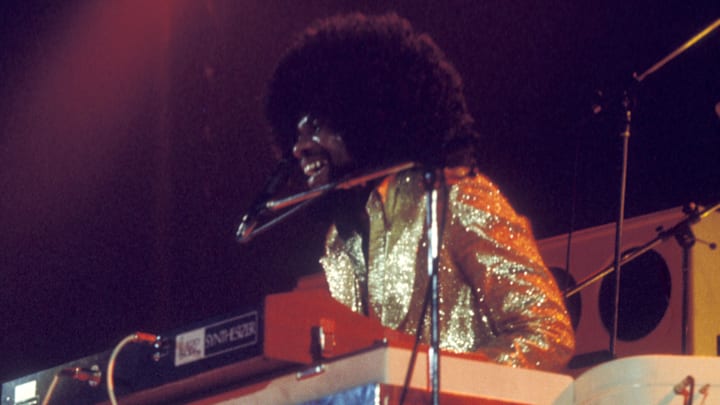I love music. You love music too, or you wouldn't be here. Now, I love a great vocal performance as much as the next... yadda yadda yadda. But man, I love the sound of a great instrumental. Here are five of the best of the 1970s.
Yes, I love the magic that vocal artists create. From Aretha to Adele, they never fail to amaze. But for me, nothing matches the sound of great instrumentalists launching into a white hot jam. Or a glacially cool jam. They're equally amazing. And stripped of the added meaning of lyrics, the music itself creates its own message for each listener.
Sure, you get a verbal cue about the song from the title itself. I'm pretty sure the first song in my list isn't supposed to make you cry over your first breakup back in the seventh grade. Or in pre-K, you early bloomer, you.
Five 1970s jams of purely magical music
But after that, the interpretation is up to you. Each musician gets their turn to shine as well, as there's more aural space for them to shine. The genre was never stronger than in the 1970s. So, let's spin some records up.
"Glad," Traffic, 1970
It would be impossible for me to choose one of these five over another, so we'll crank them up in chronological order. First up, the British rock band Traffic. One of the approximately 387 bands that featured Steve Winwood, they debuted in 1967 with the album Mr. Fantasy.
Naturally, the band broke up in 1969, but returned better than ever with 1970's John Barelycorn Must Die. Their sound shifted from psychedelic rock to a far more blues-focused sound. I, for one, am...
"Outa-Space," Billy Preston, 1971
Ah, yes, the legendary fifth Beatle himself. His career started a bit before he rocked electric piano on "Get Back," though. He appeared on NBC's Nat King Cole Show at the age of 11 to sing a duet with the all-time great. In 1962, he was Little Richard's keyboardist.
He released his first solo album, 16-Year-Old Soul, in 1963. After years as an ace session artist, he had his first major commercial success with the funk album, I Wrote a Simple Song. "Outa-Space" won the Grammy; you're about to hear why.
"Frankenstein," The Edgar Winter Group, 1972
If you came here looking for clips of Guillermo del Toro's latest masterpiece, it's not my fault; I didn't even tag the song. That's okay, though; you've found a compelling monster in its own right in this masterful instrumental. Yes, Edgar Winter and blues artist Johnny Winter are brothers.
Edgar and Ronnie Montrose were musical brothers on the band's 1972 album, They Only Come Out at Night. The title comes from the fact that the final cut was assembled from dozens of recording sessions. "Frankenstein" was my wake-up alarm song for years. Trust me, that opening riff will wake the dead.
"Jessica,", The Allman Brothers Band, 1973
From the prog-rock tone of Edgar Winter, let's jump to the blues-rock of the epitome of Southern rock, the Allman Brothers Band. Yeah, Lynyrd Skynyrd certainly is in the conversation, but Duane and Gregg Allman, along with Dickey Betts, were the true masters of the genre for me.
By the time the band released their fourth studio album, Brothers and Sisters, Duane had been gone for two years, the victim of a motorcycle accident. Betts wrote "Jessica" as a tribute to the famed Romani jazz guitarist Django Reinhardt. I believe he'd be as enthralled as we all are.
"Pick Up the Pieces," Average White Band, 1974
When I think of funk, my thoughts always turn to Scotland first. Don't yours? Oh, no, I don't mean music; I'm thinking of haggis. I'm sure it's a lovely dish, really. But I prefer the musical variety served up by the Average White Band. Their 1973 debut album did poorly, but after playing at Eric Clapton's 1973 comeback concert, they signed with Atlantic Records.
The result was the 1974 album AWB, which featured the ultra-funk of "Pick Up the Pieces."This is the one song that isn't strictly an instrumental, as the band shouts the title as a bridge. It must have worked, as it topped the U.S. pop charts and peaked at number 5 on the soul charts.
The music spans genres from prog-rock to funk, to Southern rock, and back again. One thing holds throughout, though. The instruments have their time to shine in these five rock classics.
